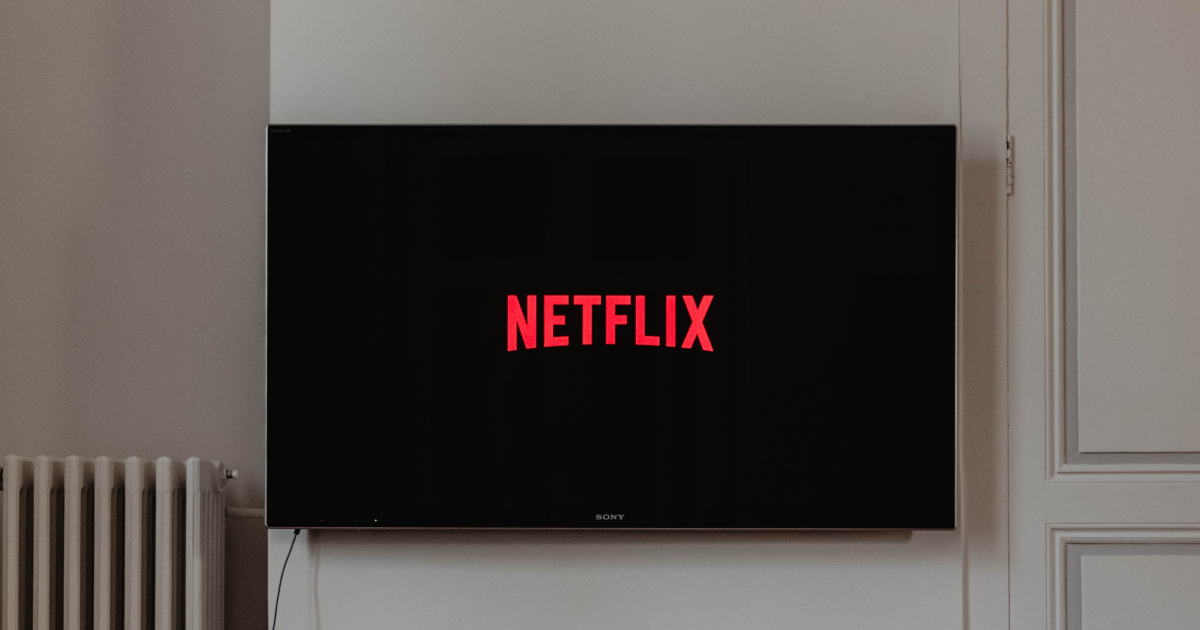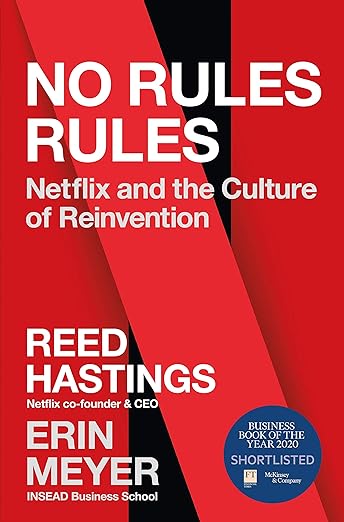Learning from Netflix: How to Build the Strongest Organization

I read "NO RULES: Netflix and the Culture of Reinvention." The content was so incredible that it had a significant impact on me. It was very fortunate to come across this book at a time when we're looking to expand our team.
I've summarized the key points for my reference.
Talent Density
In its early days, when Netflix was struggling, it reduced its staff from 120 to 80 by laying off 40 people. Though painful, the layoffs increased the talent density in the company. Despite one-third of the employees being gone, the company suddenly overflowed with passion, energy, and ideas.
- The top priority for leaders is to create a work environment composed only of the best colleagues.
- The best colleagues are those who handle significant workloads with exceptional creativity and passion.
- Having jerks, slackers, nice but underperforming people, and pessimists on the team lowers everyone's performance.
Understanding the importance of talent density makes sense. Having a group of talented individuals would certainly make work more productive.
What's interesting here is that talent isn't just about technical skills. It likely includes personality and a desire for growth.
Another chapter discusses this:
To foster a culture of candor, it's necessary to eliminate competent but non-cooperative jerks. It might seem that you can't afford to lose such a talented person, but their presence prevents the team from reaping the benefits of candor. Jerks have a disproportionately negative effect on teamwork. They erode the organization from within by hurting colleagues under the guise of 'just being honest.'
This is a common scenario. While high capability is important, personality is essential.
Feedback
Netflix constantly encourages honest feedback.
First, feedback should be given "for the benefit of the recipient" (excluding attacks or criticism).
Most people don't like being criticized. Hearing negative comments about one's work can lead to self-doubt, irritation, and feeling attacked. Our brains respond to negative feedback as they do to physical threats, triggering a fight-or-flight response.
Giving feedback, especially negative, is challenging for both parties. Particularly in Japan, where people tend to avoid rocking the boat, it's rare for people to voice their thoughts.
Research shows that most people instinctively understand the importance of hearing the truth. A 2014 study by Zenger/Folkman gathered feedback data from nearly 1000 respondents. The results showed that while praise has a feel-good effect, corrective feedback is believed to be more effective in improving performance. Most respondents felt that positive feedback didn't significantly enhance their performance.
Despite the stress and discomfort of being told about poor performance, feedback is extremely beneficial once you get past that.
The question is, "How to convey it?"
Feedback Guidelines: The "4As"
Aim to Assist
Feedback should be given with positive intentions, not to vent frustration, hurt someone intentionally, or to assert one's dominance.
Actionable
Focus on how the recipient can change their behavior based on the feedback.
Appreciate
It's natural to want to defend oneself or make excuses when criticized. Resist this reflex and ask yourself, "How can I show appreciation for this feedback, listen sincerely, consider the message without bias, and avoid self-defense or anger?"
Accept or Discard
Receiving a lot of feedback doesn't mean you always have to follow it. After sincerely saying "thank you," whether to accept it or not is up to the recipient. Both the giver and receiver of feedback must understand this.
Continuing to Pay Top-Tier Salaries
Salary is an important metric for everyone. Netflix doesn't skimp on salaries to maintain talent density. If an employee gets an offer from another company, Netflix raises their salary to exceed that offer.
To afford high salaries, the organization must be lean and efficient, which also contributes to increased talent density. Netflix continues to pay top-tier salaries by generating huge profits with a small team. If funding becomes tight, they would rather lay off another employee to increase the salary pool.
Salary Over Bonus
In most companies, salary increases are confined to a fixed pool of funds.
Performance-based bonuses seem logical. A part of the employee's compensation is guaranteed, while a portion is linked to performance. Contribute greatly to the company, and you get a bonus. Fail to meet targets, and there's no bonus. What could be more rational? Almost all American companies and many abroad adopt this approach.
Netflix does not adopt performance-based bonuses. Instead, they add the bonus portion directly to salaries.
Openly Sharing Information
Everyone has secrets they want to keep. However, the more secrets one has, the greater the psychological burden, including stress, anxiety, depression, loneliness, and low self-esteem.
Michael Slepian, a professor at Columbia Business School, notes that we have an average of 13 secrets, five of which we've never shared with anyone.
On the other hand, revealing a secret can build strong trust and loyalty in the confidant.
Netflix, for instance, informs its employees about its quarterly performance before releasing it to the public. While many companies talk about valuing transparency, few can actually achieve this level. If employees were to leak this information, it could cause a stock price crash, and the leaker might face insider trading charges. Despite these risks, Netflix opts for transparency by disclosing everything in advance. All financial information and data that Netflix’s rivals might covet are accessible to all employees. This level of trust with employees is remarkable and, by being open, ironically gains even more trust.
Lower-ranking employees gaining access to information usually reserved for top executives means they can achieve greater results on their own. Without having to pause work to seek information or approval from superiors, efficiency and speed increase. Without input from superiors, they can make better decisions.
Another example given was about informing someone about a possible transfer in six months. Normally, one might wait until it's confirmed, but Netflix communicates it immediately. By doing so, the person can prepare in advance. In all cases, it's crucial to share information openly and not hide it.
However, personal issues are an exception, where an individual's privacy rights take precedence over organizational transparency. The decision to disclose lies with the person involved.
Eliminating the Need for Approval in Decision-Making
"Don't try to please your boss. Act in the best interest of the company."
Netflix doesn’t require its employees to seek approval from their superiors before making decisions. However, to make excellent decisions, understanding the context, receiving feedback from various perspectives, and comprehending all the options are crucial. Making important decisions independently without seeking others’ opinions is viewed as poor judgment.
Handling Failure
If a subordinate or colleague goes against your advice and their action fails, the natural human reaction might be:
"I told you so."
"Next time, listen to my advice, okay?"
But such blame can lead the subordinate to prioritize avoiding mistakes over taking risks for innovation.
Despite best efforts, sometimes risks lead to failure. In such cases, the following approach is recommended:
- Ask what was learned from the project.
- Don't make a big deal about the failure.
- Encourage sharing the failure publicly.
The Keeper Test
Netflix regularly asks its managers to evaluate their subordinates and confirm if they are the right fit for their positions. Managers are taught a method called the "Keeper Test":
If a member of your team were to tell you they're leaving tomorrow, would you try to keep them? Or would you somewhat relievedly accept their departure? If it's the latter, give them a severance now and start looking for a star player to replace them.
Since Netflix pays top-tier salaries, employees strive to remain top players. Conversely, once they are no longer seen as top players, they understand they might be let go. When laying off, the management provides enough funds for a fresh start until they find a new job (Netflix offers four months' salary for non-executives and nine months for vice-presidents).
In typical companies, relative evaluations are made even if everyone is excellent. This shifts employees' focus from competing with other companies to competing with each other (a common scenario in Japanese companies).
At Netflix, the number of positions is not fixed.
As the team's capabilities increase, so do the achievable results. As results increase, so does growth. As growth occurs, the number of positions can be expanded. More positions mean more exceptional talents can be accommodated.
Feedback Circle
Netflix conducts 360-degree evaluations using real names, where most comments are about seeking improvements from the other person. Additionally, these evaluations are not used for salary increases, promotions, or layoffs. The goal is everyone's growth, not ranking.
They also have "Live 360" sessions where groups of about eight people give feedback face-to-face. Such initiatives are possible because feedback, even from subordinates to superiors, is naturally and regularly given at Netflix.
Context Over Control
Control in leadership is a familiar concept to most. It involves the superior approving, directing, and sometimes directly supervising and controlling the decisions and actions of the team. This includes giving instructions, frequently checking in, and demanding redoing work that doesn’t meet expectations.
This approach seems feasible because it involves subordinates with higher expertise than oneself. Thus, it's also related to talent density.
Conversely, leadership by context is more challenging but greatly increases subordinates’ freedom. Superiors share as much information as possible with the team, encouraging them to make excellent decisions and achieve results without supervisory control. This enhances their decision-making ability, enabling them to make superior judgments independently in the future.
Choosing between context and control depends not only on talent density but also on the company’s objectives. If eliminating mistakes is the primary goal, control-based leadership is optimal. For companies pursuing innovation, making mistakes is not a significant risk. The biggest risk is not generating groundbreaking ideas that reinvigorate the company.
If a subordinate does something foolish, don't blame them. Consider where the context you set might have been flawed. Did you accurately and creatively communicate your goals and strategies? Did you clearly explain the various preconditions and risks to enable your team to make excellent decisions? Are you and your subordinates aligned in vision and purpose?
Path to Becoming a Global Company
This chapter describes Netflix’s trial-and-error process in permeating its culture in countries outside the U.S. during its international expansion, with Japan being notably difficult for cultural penetration, likely due to its aversion to direct feedback.
Countries with a direct culture tend to use 'intensifiers' in negative feedback, such as "extremely," "obviously," "clearly," enhancing the impact of their words. In contrast, indirect cultures use 'softeners' like "somewhat," "a bit," "maybe," "slightly," which lessen the impact of criticism.
Japan clearly belongs to the indirect culture. However, the book doesn't criticize Japan but rather sees it as a difference in culture.
Netflix learned that in cultures where direct feedback is not the norm, asking employees to provide immediate feedback to colleagues or superiors often doesn't work. However, setting formal sessions, including feedback as an agenda item, and giving clear instructions and procedures can effectively elicit beneficial feedback.
This approach, treating negative feedback as part of the job and shared under the premise of being for the other person's benefit, seems more manageable.
Additionally, other effective strategies for negative feedback include "embedding warmth in the message," "presenting it as a suggestion rather than a command," and "incorporating emojis."
When speaking with people from relatively indirect cultures, start with some positive comments and words of gratitude. If the overall work performance is good, begin by sincerely praising them. Then, gradually move into feedback by presenting it as "a few suggestions." Finally, conclude with "I'm not sure how valuable this will be, but it's just my opinion" and "It's up to you whether to adopt it or not."
Conclusion
Netflix is precisely the kind of organization I aspire to create.
Reading this book was a first-time experience for me, sending chills down my spine.
Moreover, this content is difficult to apply once the organization grows large.
Reading it at just the right time might have been divine providence.
For now, the following four policies are what I want to adopt in my company:
- Hire only excellent people and relentlessly increase talent density.
- Continuously offer the highest industry-standard salaries.
- Create a culture where we can give each other serious feedback.
- Keep all information open and transparent.
















